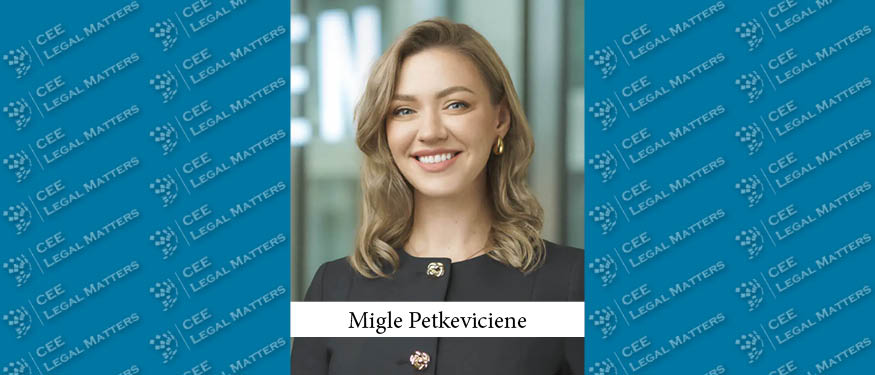This Section includes information on legal acts implementing new rules or amendments, published in the Official Journal of the Republic of Moldova, referring to corporate, employment, social, taxation, customs, environment, and other matters. This Section also includes draft legislation of any direct or indirect relevance to the Company; as well as the temporary legislative measures approved pursuant to the state of emergency in the Republic of Moldova.
I. Commercial and Corporate
Law(s):
- Quality Requirements for Edible Vegetable Oils
By Government Decision, several quality requirements for edible vegetable oils are established. The rules lay down general requirements for placing edible vegetable oils on the market, as well as minimum quality, packaging, labelling, and storage requirements for oils.
- E-Transport Authorization
The Road Transport Code is completed by a new concept "e-Transport Authorization", which is an IT system for applying for, granting, and issuing road transport authorizations, as well as for processing data and generating reports.
- Ratification of the Grant Agreement "Fertilizer Insurance for Farmers"
The ratification of the agreement between the Republic of Moldova and Japan ensures the implementation of the project to support farmers. The project provides a grant of USD 2,000,000, which shall be used to promote economic and social development in the country.
II. Tax and Customs
Law(s):
- Reporting by Non-Bank Credit Organizations
According to the regulations, non-bank credit organizations shall prepare and submit to the National Bank of Moldova specific reports on their financial situation and activities. The normative act also provides for annexes specifying the forms to be submitted in the reporting process, with the obligation to submit reports until the legal entity is removed from the register of non-banking credit organizations.
Draft law(s):
- Recognition of Commodity Exchanges Authorized in the EU
Companies that meet the following requirements shall be considered commodity exchanges:
• are registered in accordance with the law and are wholly owned by commodity exchanges that operate and are established in the Member States of the European Union;
• the founding companies meet the conditions for establishment laid down by law in the country of origin;
• the companies are recognised as functioning commodity exchanges by the public authorities responsible for the supervision or regulation of commodity exchanges in the home state or the Chamber of Commerce and Industry in the home state.
III. Employment and Social
Draft Law(s):
- Reduced Employment Age
Individuals having reached the age of 15 may conclude individual employment agreements, with the written consent of their parents or legal representatives, to undertake light work. The Labour Code is amended with the concept of light work.
- Conclusion of Fixed-Term Employment Agreements with Refugees
Individual employment agreements may be concluded for a fixed term with refugees who are employed in the labour field on the territory of the Republic of Moldova for the period of temporary or permanent work.
- Night Work, Work on Days Off and Public Holidays for a Special Category of Women Employees
Pregnant women, women who have recently given birth and breastfeeding women may perform night work, as well as work on days off and public holidays only on their own initiative.
The request is made based on a written request, with the presentation of the medical conclusion on their state of health, issued by the medical institution on the list of which they are registered, and with the consent of the employer.
- New Type Unpaid of Leave under the Labour Code
The draft law provides the introduction of a new type of unpaid leave for caring of person living in the same household as the employee. Unpaid leave may be granted to the employee based on a written request for up to 5 working days in a calendar year. During this unpaid leave, the employment agreement may be suspended at the employee's initiative.
- Unused Annual Leave Provisions
If the employee cannot use the annual leave to which it is entitled each calendar year, the employee may request the granting of the unused annual leave within a period not exceeding 2 years from the following year.
At the end of each calendar year, the employer shall inform the employee of the balance of unused annual leave, and the expiry date, and may request the use of the employee's unused annual leave days, based on an agreed schedule.
- Increased Penalties for the Use of Undeclared Work
The use of undeclared work shall be sanctioned up to 1200 conventional units for individuals and up to 1500 conventional units for legal entities.
- Additional Amended Provisions to the Labor Code
Prior to employment or transfer to a new position, the employer shall inform, in writing and in due time, the person to be employed or transferred of the conditions of employment in the proposed position.
Also, the employee may express consent or refusal to perform additional work in written form on paper or electronically with the use of an advanced electronic signature, until the actual recruitment for additional work.
IV. Consumer Protection
Law(s):
- Revision of the Consumer Protection Law
The amendments to the Consumer Protection Law implement the provisions of the European Directives to ensure compliance with consumer protection legislation. The Law sets out the general requirements for consumer protection, ensuring the necessary framework for unrestricted access to products and services, full information on their main characteristics, protection and enforcement of consumers' legitimate rights and interests in the event of unfair commercial practices, their participation in the decision-making process and in decisions affecting them as consumers.
V. Environment
Law(s):
- Substantial Amendments to the Water Law
Following the legislative amendments, the Law is supplemented with new regulations on the regime of transfer of use of lands of the Water Fund and hydrotechnical constructions, as well as on the calculation of the minimum price for these lands.
The amendments also introduce several provisions concerning the powers of public authorities in the field of water resources management and protection, and provides for new regulations on riparian water protection zones and strips.
- National Waste Management Programme 2023-2027
The document foresees the implementation of European practices in line with the EU Waste Management Directives and the promotion of the circular economy, thus contributing to the sustainable development of society.
The programme sets out the analysis of the most effective waste management options and presents a simplified conceptual framework including the prevention of waste generation, preparation for re-use, recycling, material recovery and disposal.
Draft Law(s):
- Increasing Government's Powers in the Process of Subsidising Farmers
This draft law provides for the extension of Governmental powers as to allow the allocation of financial resources in the amount of 4% of the volume of revenues necessary for the implementation of the subsidy policy in agriculture and rural areas.
The document also provides for increasing the budget of the National Fund for Development of Agriculture and Rural Environment up to MDL 2,665,280.
VI. Digitalization
Law(s):
- Implementation of Government Applications of EVO e-Services
EVO is a mobile application allowing access to electronic services, data from state registers and the storage of digital versions of identity documents, and other key documents for individuals and legal entities.
EVO collects information of all information resources available in local and external databases, ensuring interaction between individuals and legal entities.
- Implementation of the information system Maritime Single Window (MSW)
The purpose of MSW information system is to provide a single interface for the fulfilment of reporting obligations on the arrival, presence, and departure of ships.
The system allows data collection from reporting obligations on the arrival or departure of ships, the distribution of data to public authorities and the interconnection with other information systems.
- Adjustment of Road Transport Legislation
The new provisions define the concept of the "e-Transport Authorisation" information system, which is an information system for applying for, granting, and issuing road transport authorisations, as well as for processing data and generating reports.
The Law also defines a few tasks to be performed by the National Road Transport Agency and the financial capacity requirements to be met by a company.
- Obtaining the Residence Certificate in Electronic Format
The taxpayer may submit electronically the application for the issuance of the residence certificate by accessing the "Taxpayer's personal office", and the section related to "Individual services" or "Legal entity services".
The result of the examination of the application is automatically sent by the system to the taxpayer's e-mail address.
- More Activities in IT Park
Starting 12 February 2024, the activities of call centres, including those based on any technology or channel of communication with the customer, and other labour supply services, may be carried out in the IT park, provided that these services are intended for export.
Also, the park's operating period has been extended up to 20 years.
Draft law(s):
- Digitalization of G2B Services
Providers of public electronic communications networks that intend to perform installation, operation, management, maintenance, or liquidation of electronic communications networks at the state border shall submit to the National Regulatory Agency for Electronic Communications and Information Technology (“Agency") an additional notification at least 15 working days prior to the start of the activity.
The Agency shall within 15 working days from the date of notification, provide the applicant with the standard information statement on the completion of the notification of activities at the state border.
OTHER AMENDMENTS THAT MAY AFFECT THE COMPANY
Law(s)
- Designation of Electricity Market Operator
According to the Law on Electronic Energy, the limited liability company Energy Market Operator M (“OPCOM”) was designated as the electricity market operator in the Republic of Moldova. OPCOM shall be responsible for the creation and operation of organised electricity markets.
Disclaimer:
This Report is provided for informational purposes only and should not be viewed as a legal advice on any matter. Though we have exercised our best endeavours to identify and present you up-to-date and relevant details on the respective matters, the information contained herein, at any time, shall not be considered or construed as comprehensive or completely updated. Do not act or refrain from acting based upon this information without seeking professional legal counsel. The content of this Report is based solely on the information from publicly available sources and does not cover tax or accounting matters. Other than presenting this information, we will not be expected to investigate or conduct appraisal and/or verify continuing validity and accuracy of the respective information.
By Domnica Bejan, Junior Associate, and Laurentiu Racu, Legal Assistant













